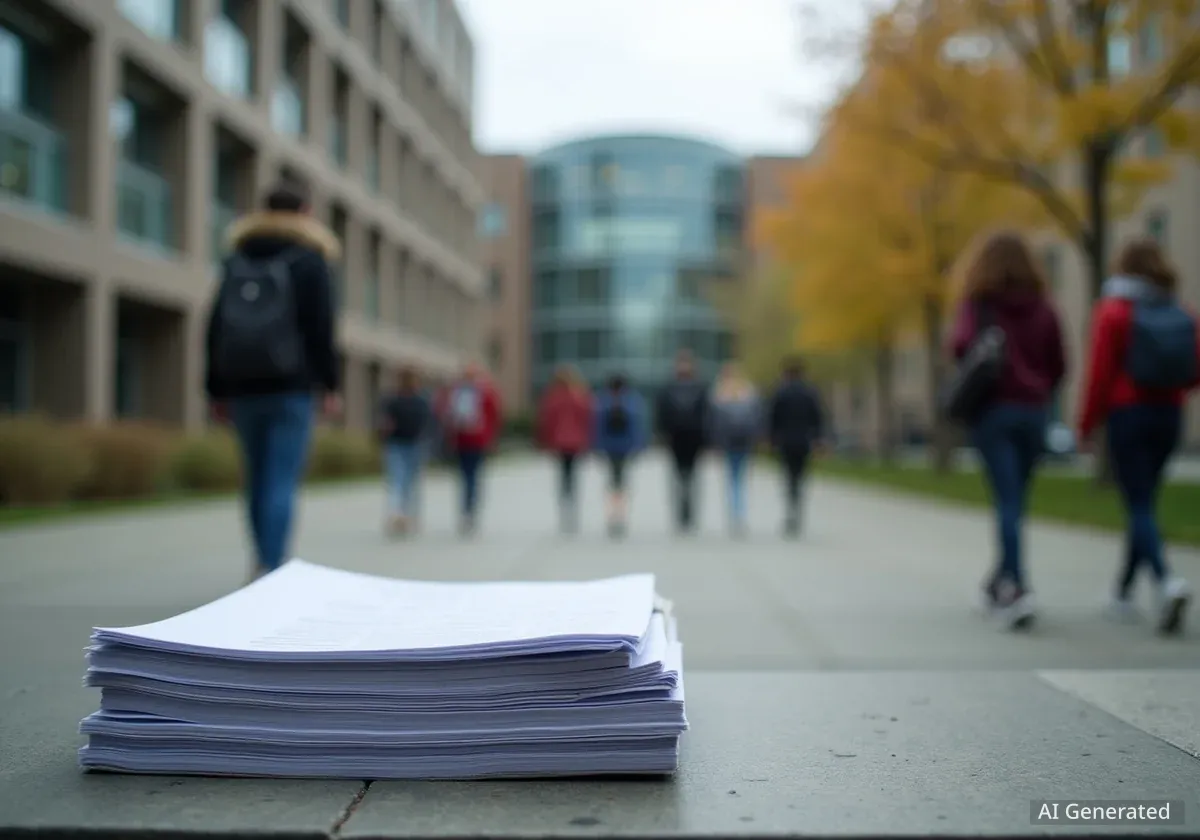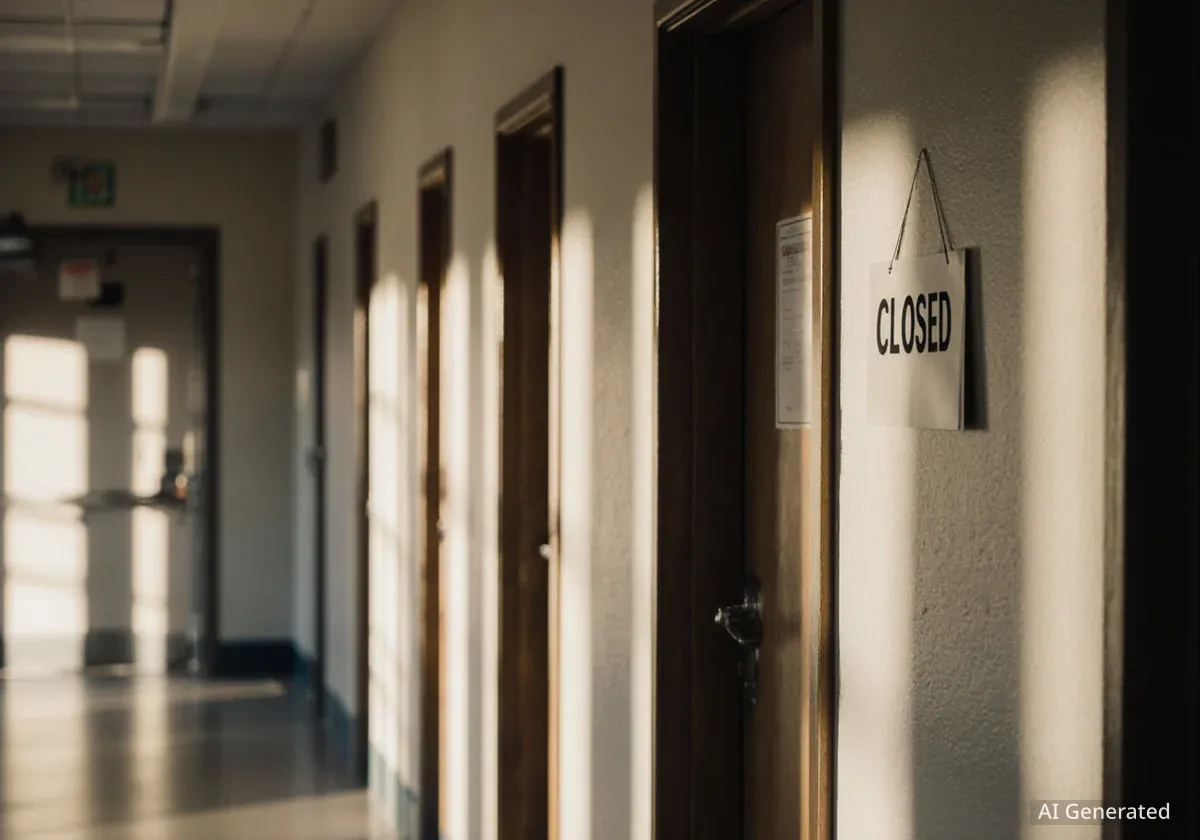The University of California faces one of the most significant challenges in its history, according to its president, James Milliken. At a recent Board of Regents meeting, Milliken stated that actions by the Trump administration, including freezing hundreds of millions in research grants, have put the university's future and its substantial federal funding at risk.
Key Takeaways
- UC President James Milliken described the federal actions as "one of the gravest threats" in the university's 157-year history.
- Over $500 million in federal research grants for UCLA remain frozen, and all 10 UC campuses are under investigation.
- The university's total annual federal funding of $17 billion is potentially at risk.
- Students, staff, and union leaders publicly urged the UC Regents not to comply with the administration's demands.
- UC is also facing a separate financial shortfall from the state of California, despite exceeding its enrollment targets for state residents.
Federal Investigation Puts Billions at Risk
During his first meeting with the Board of Regents since taking office on August 1, University of California President James Milliken delivered a stark assessment of the university's situation. He warned that recent federal actions have cast a "dark shadow over our entire future."
The warning comes after the Trump administration halted $584 million in federal research grants designated for UCLA. More than $500 million of that funding remains inaccessible, creating a crisis for numerous research projects. Milliken emphasized that the investigation extends beyond a single campus.
"The University of California the world has come to know is now at risk," Milliken told the regents. He clarified that the federal government is investigating all 10 UC campuses, not just UCLA. This broader scrutiny places the entire system's federal support in jeopardy.
UC's Federal Funding by the Numbers
- $17 billion: Total annual federal funding received by the UC system.
- $584 million: The amount of UCLA research grants initially frozen by the administration.
- $1 billion+: The amount the U.S. Department of Justice has reportedly demanded from UC to restore the frozen funds.
This funding supports a wide range of essential university functions, including participation in Medicare and Medicaid, scientific research, and student financial aid programs. Milliken stressed that the potential loss of these funds threatens "the viability of our institutions… threatening the future of our state and our nation."
Public Calls for University Resistance
The regents meeting included a public comment period where students, staff, and union representatives voiced strong opposition to negotiating with the Trump administration. Many speakers urged the university's governing board to take a firm stand.
Jason Rabinowitz, who heads the Teamsters Local 2010 union representing thousands of UC employees, was direct in his message. "Do not capitulate! There should be no agreement to pay extortion money," he stated. His union is part of a lawsuit filed against the government to block the effort to cut off federal funds.
"Do not cave to the Trump administration!" declared a speaker who identified himself as a UCLA employee during the public comment session.
The administration's demands reportedly seek oversight in areas like hiring, student admissions, and how the university defines gender identity. One caller, Melanie, who received gender-affirming care at a UC hospital, pleaded with the board to protect transgender and nonbinary people, referencing the administration's pressure on other universities to cease similar medical treatments.
Activist Safety Concerns Raised
Peyrin Kao, a computer science lecturer at UC Berkeley, shared a personal concern related to the federal investigation. Kao, an activist who has been on a hunger strike for pro-Palestinian causes, told the regents he learned his name was on a list of 160 individuals that UC Berkeley provided to the administration.
"My family and I are worried for our safety," Kao said, highlighting the personal consequences of the ongoing dispute for members of the university community.
Background of the Dispute
The federal action began in July when the administration announced that UCLA had violated federal civil rights laws in its handling of antisemitism allegations. These allegations arose during pro-Palestinian demonstrations on campus related to the conflict in Gaza. The administration and its allies have sought to influence policies at several major American universities, with some like Harvard University pursuing legal challenges in response.
Dual Financial Pressures on the University
While the federal funding crisis dominated the meeting, UC officials also outlined significant financial challenges at the state level. The university is currently preparing its budget request for the next fiscal year, and the outlook is strained.
In a presentation to the finance committee, UC Chief Financial Officer Nathan Brostrom and budget expert Cain Diaz reported that incoming state funds "will not be sufficient to fully cover the cost increases of over $500 million expected for 2025-26."
This shortfall exists despite a five-year compact signed with the state of California in 2022. The agreement was designed to provide predictable funding increases in exchange for UC enrolling more California residents. However, the university has not received the full promised amount.
- Promised Funding: Over $900 million in new funding by this point.
- Received Funding: Only $515 million has been paid by the state.
Despite the funding gap, the university has surpassed its enrollment commitments. For the 2024-25 academic year, UC enrolled 210,635 California undergraduates, which is 4,047 more students than the compact's target of 206,588. Projections show this trend continuing into the next year.
In response to the federal threat to research funding, state lawmakers have introduced a new bill, SB607. The legislation, supported by UC, aims to create a ballot measure for November 2026 that would establish a state-funded research foundation, providing an alternative source of support for scientific and health research in California.





